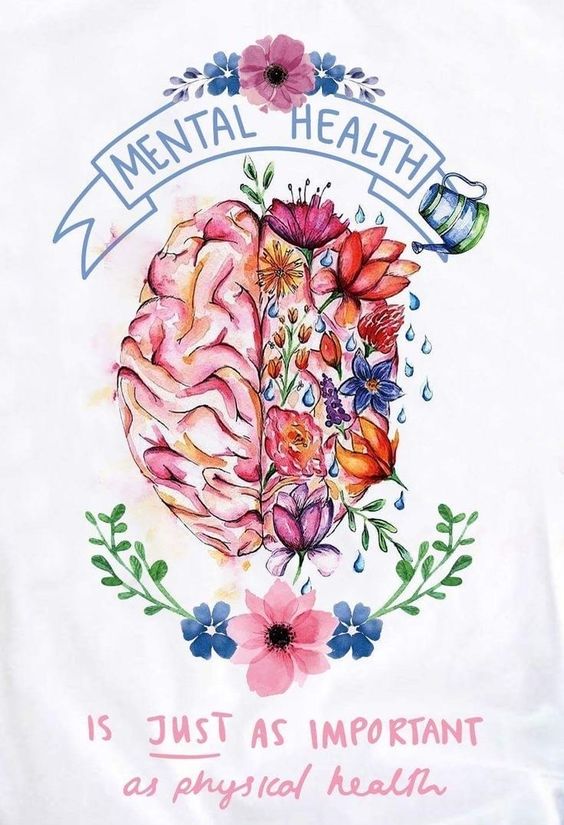
According to WHO, Mental health is a state of well-being in which a person recognizes his or her abilities, can manage the normal stresses of life, can work productively, and can contribute to his or her community. Many factors blend jointly to influence the health of individuals and communities. Whether people are physically sound or not, is determined by their circumstances and environment.
On this basis, WHO has developed Determinants of Health, consisting of;
- the social and economic environment,
- the physical environment, and
- the person’s characteristics and behaviours.
Thus, just because a person is physically healthy doesn’t conclude that the person is mentally healthy.
In our present society, “how we’re failing to address mental health needs and the consequences of that failure is much devastating and dreadful”. The gap in mental health care coverage for common situations is curable with an early approach but still, the services often provided are of poor quality or else it is not feasibly provided without human rights violation. Thus, the effective way to solve these problems was raised out through the Universal Health Coverage (UHC) set of arguments. Now, let us discuss those important arguments and the facts put forward by UHC.
ARGUMENT 1: There is no health without mental health
Nowadays, some of them are aware of mental health, but it is not much translated into action and investment. Even though there is a wide range of intervention methods, the quality, and the approach applied, the gap is even unfilled. And also, seeking treatment is and always remains a choice, and too because of the barriers known as “availability & affordability”.
Vulnerable populations are particularly prone to mental health conditions. And this vulnerability is based on, as mentioned above, the determinants of health.
According to UHC, the close connection between mental health and people’s socioeconomic background means the gap in mental health care providers may be a hindrance to reaching the global development endeavours enclosed in the Sustainable Development Goals (SDGs).
There is weighty proof to suggest that when mental health services are combined with physical health services, the treatment approach contributes to better and overall positive health outcomes. Integrating mental health care into UHC can also withstand the prevention and treatment of Non-communicable diseases (NCD), providing better health systems.
While the summation of mental health with UHC is important for the whole healthcare system, it is extremely crucial at primary and community health levels which will be the corner stone of UHC.
ARGUMENT 2: Mental health spending is an investment, not a cost
United Nations High Commissioner for Refugees (UNHCR) stated that, Mental Health support should not be a Luxury. It is a human right for everyone and everywhere. Frankly speaking, spending on health should be seen exactly as an investment, a possibility to increase national well-being and prosperity; and not as a cost. And this is incomplete if we not include mental health in this, also integrating mental health in UHC will be a fundamental to sustainable development as well as a component of the Human Capital Index.
Mental health interventions can be delivered in a highly cost-effective way, another firm assertion for integrating mental health in UHC at scale.
Moreover, incorporating and mainstreaming mental health in UHC can also support the integration of mental health into the more expansive national development agenda, forming possibilities for inter-sectoral alliance like education sector, social services, violence prevention.
UHC argues that the resources disbursed on mental health should not be considered as a cost, whereas they are truly ‘human capital’ assets that can yield a direct retrieval for the economy and for human development.
ARGUMENT 3 Mental health, UHC and human rights
Access to quality and feasible healthcare including mental health care is a right, not a request. Mental health must be integrated in UHC, if UHC is to attain its goal of delivering everyone the right to health.
The integration of mental health in UHC, if enforced according to a rights-based approach, would be a key stepping-stone towards recognizing the rights of people living with mental health situations, in accord with the Convention on the Rights of Persons with Disabilities (CRPD), including the right to health, the right to freedom from torture, the right to liberty and security of the person, and others basic rights.
We can’t let an article to stop only with facts, thus let e conclude the above one with a simple but strong suggestion, if you ever think it is time to invest in Mental Health, its now, no “tomorrows”. We all are part of this community/society and it’s our responsibility to promote mental health and stop judgemental if anyone opens up with their mental health issues. Because, as I said earlier, eventually there is no health without mental health”. !

REFERENCES
